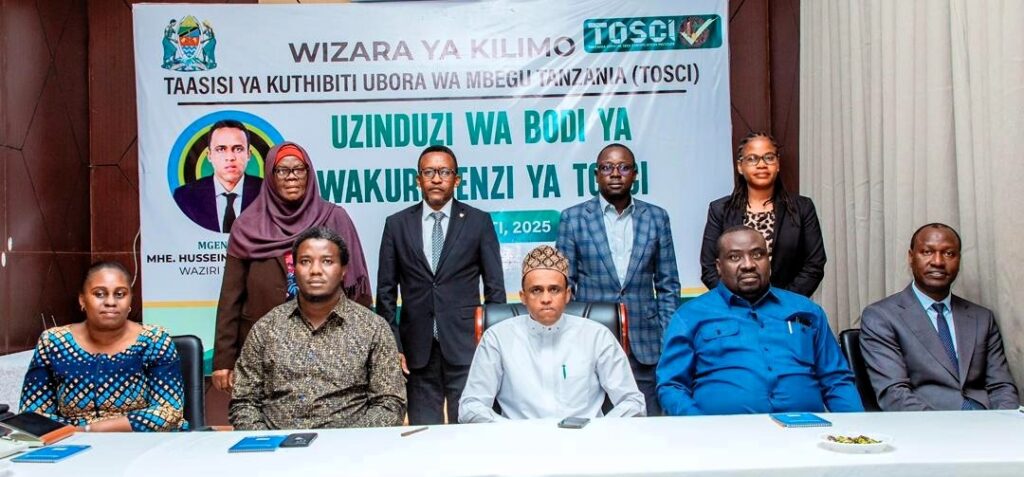Tanzania’s Minister for Agriculture, Hussein Bashe, has issued firm directives to intensify the fight against the circulation of fake seeds in the country. He emphasized that counterfeit seeds remain one of the most pressing challenges undermining farmers’ productivity and national agricultural development.
Speaking in Dodoma during the inauguration of the new Tanzania Official Seed Certification Institute (TOSCI) Board of Directors, the minister directed TOSCI to work closely with the Prevention and Combating of Corruption Bureau (PCCB) to dismantle networks behind the sale and distribution of fake seeds. He called for stronger enforcement measures to ensure farmers access genuine, high-quality planting materials.
Bashe stressed that fake seeds not only reduce yields but also discourage farmers from investing in modern agriculture. “The problem of fake seeds is a serious challenge for farmers and the growth of agriculture in our country. TOSCI and PCCB must strengthen their collaboration to identify all those involved and take strong legal action against them,” he said.
In addition to the crackdown, the minister directed the new TOSCI board to work hand-in-hand with the Tanzania Agricultural Research Institute (TARI), the Agricultural Seed Agency (ASA), and the Tanzania Plant Health and Pesticides Authority (TPHPA). These institutions are expected to design joint strategies to increase efficiency, strengthen regulation, and boost the production of quality seeds.
The minister was accompanied by senior agricultural officials, including Deputy Minister for Agriculture David Silinde and Deputy Permanent Secretary responsible for Irrigation and Agricultural Mechanization, Eng. Athumani Kilundumya. Their presence underlined the government’s commitment to safeguarding farmers’ interests.
Official figures highlight Tanzania’s rising demand for certified seeds. For the 2025/2026 financial year, the requirement is projected at 127,650 tonnes. Current production of certified seeds stands at 63,526.54 tonnes but is expected to grow significantly to 90,000 tonnes. Overall seed availability is projected to rise from 79,700.62 tonnes to 105,000 tonnes, marking a notable step towards narrowing the supply gap.
The crackdown on fake seeds, coupled with improved collaboration among agricultural institutions, is expected to restore confidence among farmers and enhance national food security. By ensuring access to quality planting materials, Tanzania aims to boost yields, raise incomes for farming households, and support sustainable agricultural transformation.

